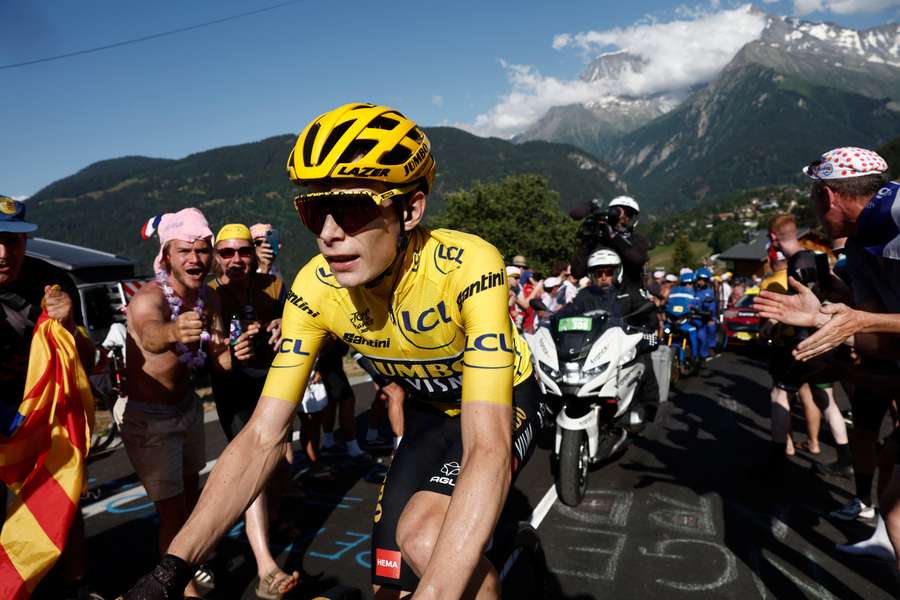Tour de France leader Jonas Vingegaard welcomes scepticism about performances

Vingegaard and Slovenian Pogacar have been on their own planet, winning the last three editions of the Tour and taking the top two spots in 2021 and 2022, and this year their opponents have been left dumbfounded.
"How do I see them? From afar in the climbs," France's Guillaume Martin (30), who won the mountains classification at the 2020 Vuelta, said.
While Vingegaard only has a 10-second gap over Slovenian Pogacar after two weeks of racing, the Dane leads third-placed Carlos Rodriguez (22) by a massive five minutes and 21 seconds.
Since the first two mountain stages in the Pyrenees, it became evident they would not have any rival for the title.
On Sunday, Pogacar and Vingegaard clocked 18:27 on the final climb, beating four-time Tour winner Chris Froome's record by 42 seconds.
On Saturday, they went faster than Marco Pantani, the 1998 Tour champion whose career was marred by doping allegations, in the first 10km of the ascent to the Col de Joux Plane.
"To be honest I fully understand the scepticism. We have to be sceptical, with what happened in the past, otherwise it would happen again," Vingegaard told a news conference after Sunday's 15th stage.
"So yes, I fully understand the questions we're getting about it (our performances)," said Vingegaard. "All I can say is I'm not taking anything but yes to be honest there is scepticism about us going fast and yes I think it's a good thing."
"And also something else, there is the food, the material, the training (that have improved) but again it's always good to be sceptical or think about it at least."
DOPING SCANDALS
Cycling has had to deal with several full-scale doping scandals, including the 1998 Festina affair when the team was kicked out of the race after customs officers seized banned substances, including the blood-boosting drug erythropoietin (EPO) before the start of the race.
In one of the biggest drug scandals in world sport, American Lance Armstrong was stripped of his seven titles from 1999-2005 and handed a lifetime ban in 2012 for using performance-enhancing drugs and the following year admitted to doping.
Germany’s 1997 Tour winner Jan Ullrich and Giro d’Italia champion Ivan Basso were among nine competitors withdrawn on the eve of the prologue that year after being implicated in a Spanish doping investigation, Operation Puerto.
In 2006, Floyd Landis became the first Tour winner to fail a drugs test during the race after testing positive for the male sex hormone testosterone. The American was stripped of the title and given a two-year ban.
In 2007, pre-race favourite Alexandre Vinokourov tested positive for blood doping after winning a time trial.
The Kazakh’s Astana team left the Tour and sacked Vinokourov, who denied any wrongdoing, and Tour leader Michael Rasmussen was then fired by his Rabobank team during the race for lying about his whereabouts in training.



